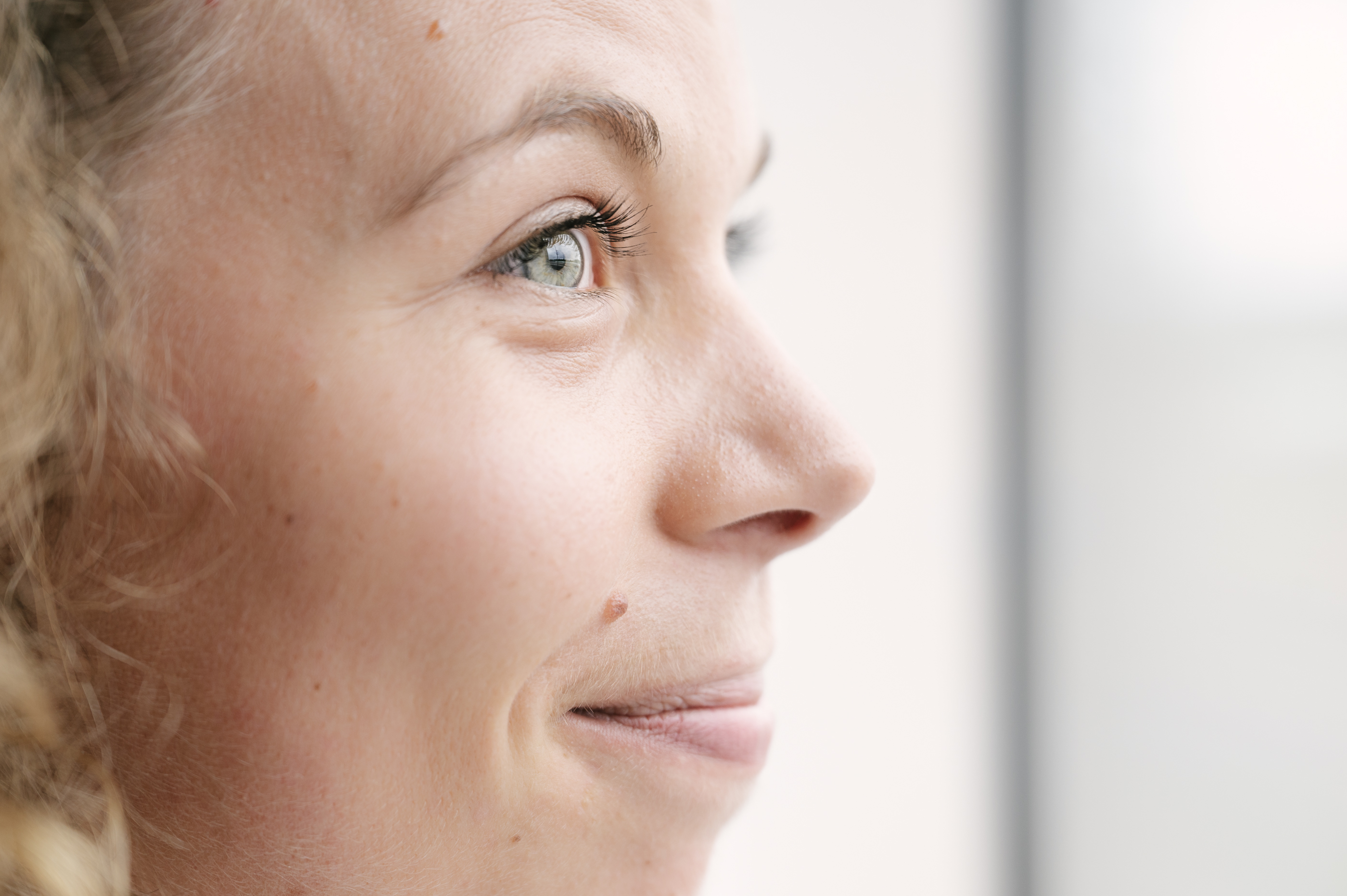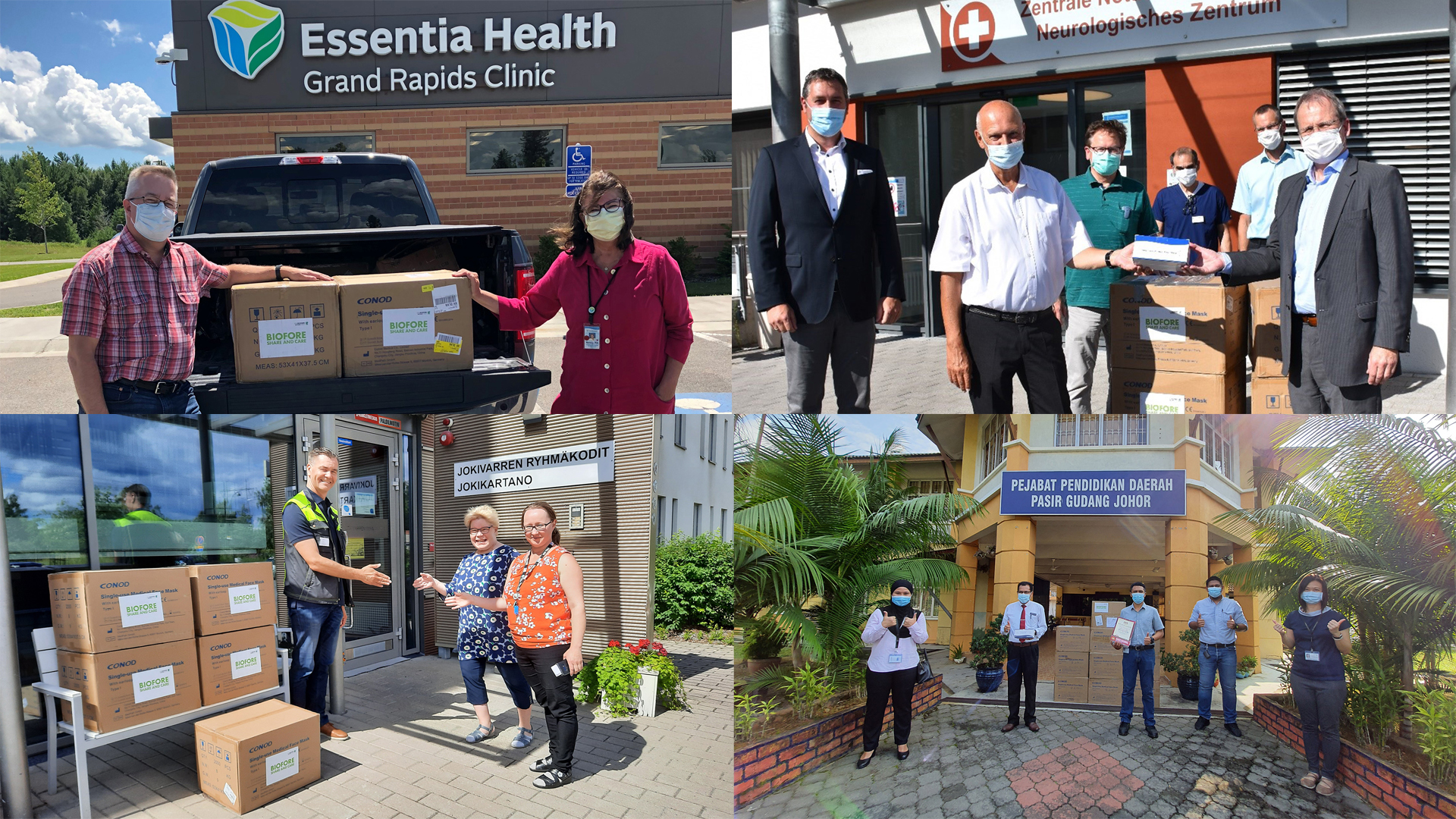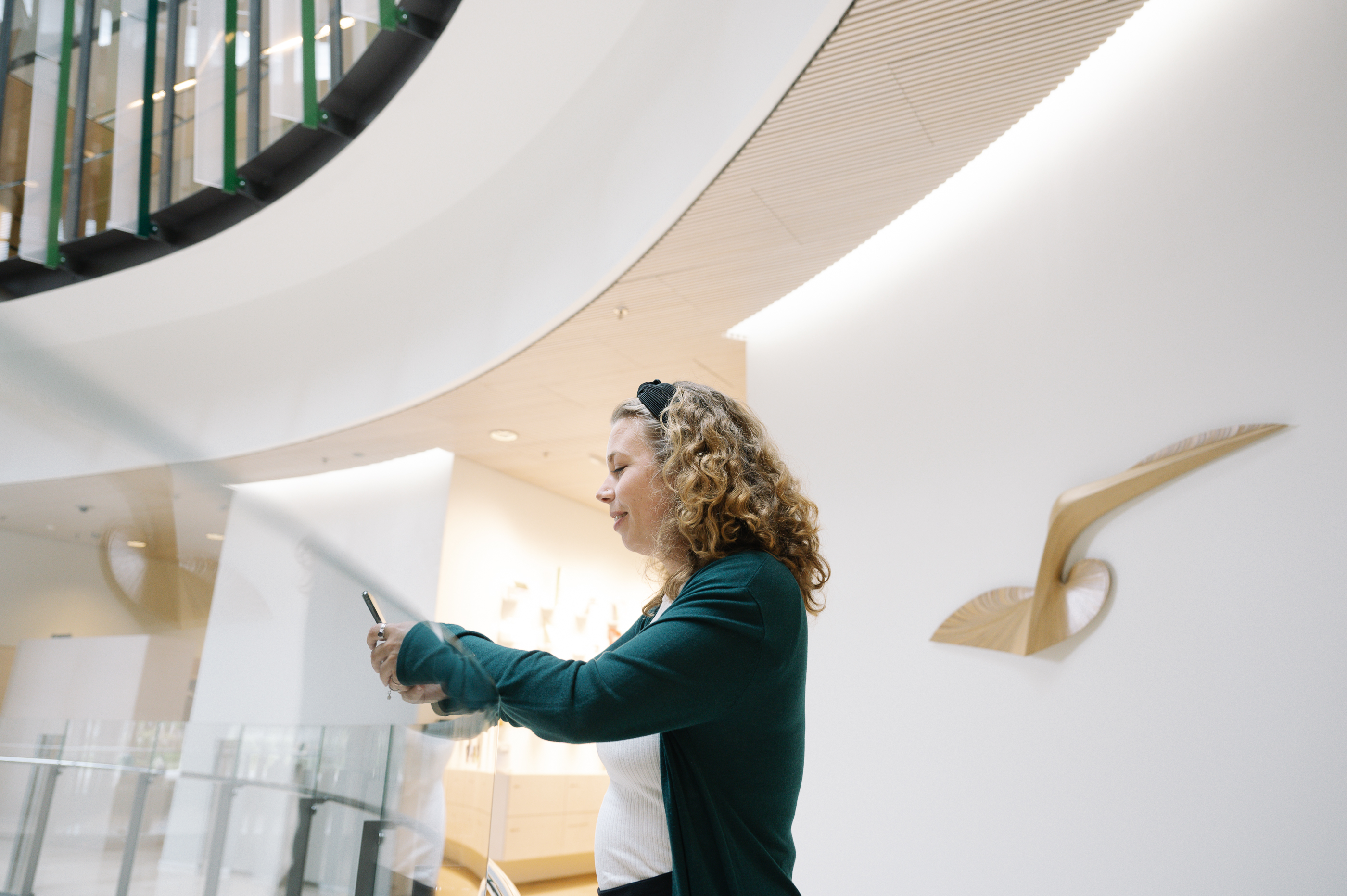When I started in May, I thought my work in the Responsibility Team would revolve around human rights, sustainability and responsibility. I thought my tasks would consist of reporting, analysing data, communication and engaging with stakeholders. I really wanted to be able to familiarise myself with human rights and responsibility issues from a business point of view. My summer at UPM offered me the chance to do all of these things.
Because of the coronavirus pandemic, I started work mostly on a remote basis, which brought some challenges in orientation to the way the company works. It also meant that I met my colleagues through Microsoft Teams meetings, which felt strange at first. The coronavirus didn’t just affect the way I work, but it also affected my tasks throughout the summer 2020.

“Not so fast”
The most important single task I had was coordinating a face mask project conducted under the Biofore Share and Care programme. The project started in May and was the result of a collective effort of several teams of experts at UPM. The aim of the project was to provide local communities at UPM mill locations with 500,000 face masks, and the task turned out to be an emotional rollercoaster for me. Early June, on top of trying to remember the names of my team members and learning about the characteristics of each business, I soon found myself deep in the mask project.
The project started very quickly, and it felt like jumping in at the deep end. I was drowning in emails, and information about the developments of the project seemed to come from all sides at once. I was constantly writing down notes and to-do lists to make sure that I stayed on top of things. These notes became indispensable during the summer. The project only seemed to speed up as it developed, and I worked hard to stay focused on the bigger picture and stay in control. The project was defined by a sense of urgency. There were several occasions when I just wanted to take a time out. The workdays dragged on and the project even haunted my dreams — I remember dreaming about multiple press conferences where I was answering questions about masks.
In reality though, press conferences weren’t part of my duties, although the job did have many other challenging aspects. I even did some detective work over the summer when I had to try to find boxes of masks that had been lost and verify the address and contact details of receivers in Finland and abroad. Masks were sent to local communities near UPM mill locations all around the globe, so my non-existent skills in Chinese and Polish were put to the test when I had to try to find out the receivers’ details with the help of a translator. I also sent and received deeds of assignment and tried to keep up with e-mail chains that occasionally stretched out to the length of full-blown novels, as well as posting updates on UPM’s website and helping my colleagues with local communication. In June, I also had time to visit the Kymi mill and check the masks that we were going to send abroad. My work over the summer confirmed to me that the skills I have learnt as a social scientist and a generalist are very useful when working in a big organisation like UPM.
In the job interview, I spoke about how I am a professional in project management. My project management skills were truly put to the test this summer and I can proudly say that I was able to keep my promises. I think this experience was very valuable and educational for me despite the urgency of the project. The ability to independently manage my work and take the initiative were key during my tasks over the summer, and I have received a lot of praise for these skills.
The mask project was a new challenge for my colleagues too, which may be the reason why it felt so hectic. At times, it was even a bit unnerving having to balance all the different aspects of the projects. All in all, the project was a success and all the masks found their way to their receivers. The collaboration with UPM employees across the world went smoothly, and the project has garnered positive attention. The messages and social media posts that show how the mask donations helped people during the pandemic have made me very happy.

Access to face masks is a human rights issue
Under the international human rights conventions, everyone has a right to health. It is primarily the job of governments to secure this human right, but other groups in society, such as businesses, are also responsible. From a human rights point of view, it’s essential that we limit the spread of diseases such as the coronavirus, and, in particular, we need to ensure that those in a more vulnerable position are able to protect themselves from the virus.
This is why it has been so fulfilling to coordinate this project that has helped senior citizens, disabled people and health care professionals. The mask project was meaningful work to me, and I am proud to have been a part of ensuring basic human rights for those in UPM’s local communities.
If you are interested to read more about UPM’s COVID-19 support for local communities, check this page on upm.com.
